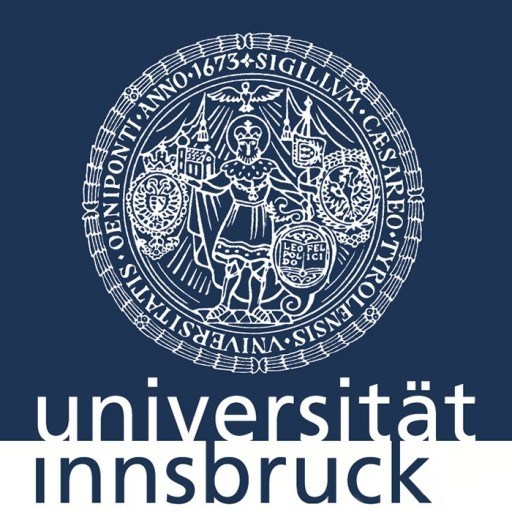Photos of university / #universityofgothenburg
The Master's Programme in Atmospheric Science at the University of Gothenburg offers students a comprehensive education in the physical and chemical processes governing the Earth's atmosphere. This interdisciplinary program is designed to prepare graduates for research, environmental consultancy, and policymaking roles related to atmospheric phenomena and climate change. Throughout the program, students engage with core subjects such as meteorology, climatology, atmospheric chemistry, and remote sensing, gaining a robust understanding of how atmospheric systems function and interact. The curriculum combines theoretical coursework with practical exercises, including laboratory work, field studies, and computer modeling, enabling students to develop strong analytical and problem-solving skills. Students will also learn about the impacts of human activity on atmospheric conditions, including air pollution and greenhouse gas emissions, and explore strategies for mitigation and adaptation. The program emphasizes the importance of scientific communication and teamwork, preparing students to collaborate effectively across disciplines and stakeholder groups. In addition, students have opportunities to participate in cutting-edge research projects conducted by faculty members, often incorporating data analysis, climate modeling, and satellite observations. The program culminates in a Master's thesis that allows students to contribute original research to the field of atmospheric science. Graduates of this program will be well-equipped to pursue careers in environmental agencies, research institutes, international organizations, and the private sector, or to continue their studies in doctoral programs. With its strong focus on scientific rigor, practical skills, and societal relevance, the Master's Programme in Atmospheric Science at the University of Gothenburg provides a solid foundation for addressing some of the most pressing environmental challenges facing our world today.
The Master's Programme in Atmospheric Science at the University of Gothenburg offers a comprehensive and in-depth education designed to prepare students for careers in the atmospheric and environmental sciences. The programme provides a solid foundation in understanding the physical, chemical, and dynamical processes that govern the atmosphere and its interactions with the Earth's surface and oceans. Students will explore topics such as climate change, weather prediction, atmospheric chemistry, remote sensing, and air quality management. The programme emphasizes both theoretical knowledge and practical skills, enabling graduates to analyze atmospheric data, model atmospheric phenomena, and contribute to sustainable solutions for environmental challenges.
Throughout the programme, students will engage in coursework that covers meteorology, climate science, atmospheric physics, and environmental monitoring. The curriculum integrates advanced techniques in data analysis, geographic information systems (GIS), and numerical modeling. Laboratory work and field studies supplement classroom learning, providing hands-on experience in atmospheric measurements and diagnostics. Students also participate in research projects, often collaborating with faculty and external organizations, which fosters critical thinking and problem-solving abilities.
The programme prepares students for diverse career paths, including research positions within academia and industry, governmental agencies responsible for environmental protection and weather services, and private sector companies involved in climate consulting and atmospheric monitoring. Students gain a broader understanding of climate policy, environmental legislation, and societal impacts related to atmospheric phenomena. The degree emphasizes sustainability and responsible stewardship of natural resources, aligning with the university’s commitment to addressing global environmental issues.
Graduates of the Atmospheric Science programme at the University of Gothenburg are equipped with the expertise needed to analyze and address current atmospheric challenges, contribute to scientific advancements, and influence policy decisions. The programme benefits from the university’s strong research environment and collaborations with national and international research institutions, ensuring students are connected to the latest developments in atmospheric sciences. The flexible structure of the programme allows students to tailor their studies according to their interests, whether in climate change, atmospheric chemistry, or meteorology, and prepares them for a variety of professional and academic pathways in this vital field.
Program requirements for the Bachelor's degree in Atmospheric Science at the University of Gothenburg include a combination of core courses, elective modules, and a final thesis project. Students are expected to have completed upper secondary education with a focus on science subjects, including mathematics and physics, to be eligible for admission. The program necessitates foundational knowledge in physics, chemistry, and mathematics to adequately understand atmospheric processes and climate systems.
Throughout the programme, students take courses such as Meteorology, Climate Change, Atmospheric Chemistry, and Oceanography, which provide comprehensive insights into atmospheric phenomena, climate variability, and environmental impacts. Practical skills are emphasized through laboratory work, field excursions, and computer-based modeling exercises, equipping students with the ability to analyze climatic data and simulate atmospheric processes. The program also fosters interdisciplinary understanding by covering topics in environmental science, statistics, and remote sensing technologies.
A key component of the curriculum is a final thesis project, which involves independent research under supervision, allowing students to apply theoretical knowledge to real-world atmospheric issues. To graduate, students must accumulate a specified number of credits, typically including both coursework and research components, as determined by the university's standards. Additionally, students are encouraged to participate in internships or exchange programs to gain global perspectives and practical experience. Proficiency in English is required, both in comprehension and communication, to succeed in coursework and international research collaborations. The program aims to prepare graduates for careers in environmental consultancy, meteorological services, climate research, or further studies at the postgraduate level.
The financing of the Atmospheric Science program at the University of Gothenburg is primarily structured through a combination of government funding, tuition fees, and scholarship opportunities. As a Swedish university, the program benefits from public funding provided by the Swedish government, which allows domestic students to pursue their studies at little or no cost. For international students, tuition fees are applicable and are set in accordance with the university’s fee structure, which is regularly updated and communicated on the official university website. The fees can vary depending on the level of study and specific course components but are designed to be competitive within the European higher education landscape.
Additionally, the university offers numerous scholarship programs aimed at supporting both domestic and international students financially. These scholarships are often merit-based or need-based and are intended to reduce the financial burden of tuition fees and living expenses. International students are encouraged to apply for these scholarships early, as they are limited in number and highly competitive. There are also external funding options available through government grants, research council scholarships, and international organizations, which students can pursue to finance their studies in atmospheric sciences.
Apart from scholarships and government funding, students may also consider part-time work opportunities offered by the university or local employment agencies. The University of Gothenburg fosters an environment conducive to student employment, especially in research assistant positions or administrative roles within the university, which can help offset living costs.
Furthermore, the program is designed to include opportunities for practical experience through internships and research projects, some of which are funding-supported, enhancing student employability post-graduation. For students interested in pursuing a Master’s or doctoral level, funding options are often tied to research grants awarded to faculty members, providing opportunities for financial support in the form of assistantships or stipends.
In summary, the financing of the Atmospheric Science program at the University of Gothenburg is multifaceted, combining public funding, institutional scholarships, external grants, and part-time employment opportunities. Potential students are advised to review the university’s official website regularly and contact the admissions office for the most current information on tuition fees, scholarship deadlines, and application procedures. This comprehensive approach ensures that students from diverse financial backgrounds can access high-quality education in atmospheric sciences at the University of Gothenburg.
The Bachelor’s degree program in Atmospheric Science at the University of Gothenburg offers students a comprehensive understanding of the Earth's atmosphere, weather systems, and climate processes. The program aims to prepare students for careers in meteorology, climate research, environmental consulting, and related fields. Throughout the degree, students engage in a combination of theoretical studies and practical applications, including atmospheric physics, chemistry, and dynamics, as well as climate modeling and data analysis. The curriculum emphasizes the importance of understanding atmospheric phenomena and their impact on the environment and society. Students have opportunities to participate in fieldwork, internships, and collaborative research projects, which enhance their practical skills and employability. The program is designed to equip graduates with a solid foundation in scientific principles, analytical techniques, and problem-solving abilities relevant to atmospheric sciences. As part of the University of Gothenburg, students benefit from access to state-of-the-art laboratories, research centers, and expert faculty members dedicated to advancing knowledge in atmospheric studies. The program also encourages critical thinking and interdisciplinary approaches, integrating knowledge from physics, chemistry, mathematics, and computer science. Graduates from the program are well-prepared to pursue further studies at the master's level or to enter the workforce directly in fields such as weather forecasting, climate change analysis, environmental assessment, and policy development. The atmospheric science degree at the University of Gothenburg reflects a commitment to addressing global environmental challenges and promoting sustainable development through science-driven solutions. Students are encouraged to engage with issues related to climate variability, air quality, and the impacts of human activity on the atmosphere. Graduates will possess analytical skills, scientific knowledge, and practical experience necessary for advancing our understanding of atmospheric phenomena and contributing to societal resilience against climate-related risks.










